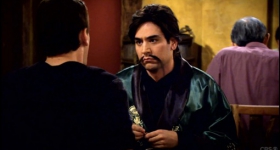But then she saw an upstart presidential candidate named Barack
Obama giving interviews saying he was African American even though his
mother was white and his father was from Kenya. And then this candidate
became the first African American president, and she realized, "Obama is
black. And so am I."
Read her essay, now featured on our homepage and here.
If you would like to comment on the essay, do it below. Our publishing system doesn't allow comments on Web articles.










Comments